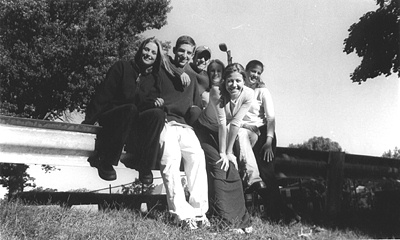All Nonfiction
- Bullying
- Books
- Academic
- Author Interviews
- Celebrity interviews
- College Articles
- College Essays
- Educator of the Year
- Heroes
- Interviews
- Memoir
- Personal Experience
- Sports
- Travel & Culture
All Opinions
- Bullying
- Current Events / Politics
- Discrimination
- Drugs / Alcohol / Smoking
- Entertainment / Celebrities
- Environment
- Love / Relationships
- Movies / Music / TV
- Pop Culture / Trends
- School / College
- Social Issues / Civics
- Spirituality / Religion
- Sports / Hobbies
All Hot Topics
- Bullying
- Community Service
- Environment
- Health
- Letters to the Editor
- Pride & Prejudice
- What Matters
- Back
Summer Guide
- Program Links
- Program Reviews
- Back
College Guide
- College Links
- College Reviews
- College Essays
- College Articles
- Back
Examination of an Occupational Cliche
“Love what you do and do you what you love.” Ray Bradbury first penned this phrase which was quickly categorized under inspirational cliché quotes. It is an idea that sounds nice,, but, let’s face it, cannot come into fruition. Forbes advises us against this personal philosophy. The money might not flow, Forbes warns. You’ll be distracted from the real world, from reality, from your job. Yes, society discards passion for money, trades in enthusiasm for security. Although, society seems to prize the monetarily ambitious, The CEOs of insurance companies or other dull enterprises, it seems that those who prosper truly are those who do what they love. There must be a driving passion and a pride that is found within the occupation. This ardor is what keeps man interested, moral, enthusiastic and alive. Finding joy and interest within your work may be our link to truly living.
In his essay, The Surgeon as priest, Richard Selzer equates himself with the physician, full of fervor, depicted in a painting adorning the walls of a medical school. “Vesalius reaches for his dissecting knife. As he does so, he glances over his shoulder at the crucifix on the wall. . .He knows that there is something wrong, forbidden in what he is about to do, but he cannot help himself, for he is a fanatic. . . To see, to feel, to discover is all. His is a passion, not a romance.” (197) Although some may classify Selzer’s morbid zeal as grotesque or perverse, one cannot argue that he finds ultimate fulfillment in his profession. It is apparent throughout his essay that Selzer is in perpetual wonder at the beauty and (almost) sanctity of the body. He knows that it is a privilege to be allowed access to man’s most intimate possession. As the essay draws to an end, Selzer draws the connection between the surgeon and priest, physical healing and the divine. To truly succeed you must put a bit of yourself into your profession. I find Selzer’s monologue to be quite admirable. It is apparent that he pours his heart, soul and being into his work, and from it gleans a whole sense of passion and fulfillment. You can tell that he would not trade his work for anything, for his is a passion, and isn’t this the definition happiness?
We see an alternative in Barbara Ehrenreich’s, Serving in Florida, working in an unpleasant, dead end job can actually change your person, inexplicably alter your character. After a trial of working in Jerry’s, Ehrenreich discovers that a foreign friend of hers, George, is accused of stealing wholesale products from the backroom and will, almost definitely, be fired. She is confident in his innocence, ready to stand up for his right to defense. But she doesn’t. She writes: “In real life I am moderately brave, but plenty of brave people shed their courage in POW camps, and maybe something similar goes on in the infinitely more congenial milieu of a low-wage American workplace. . . Then again in a month or two I may have turned into a different person altogether—say, the kind of person who would have turned George in.” (186) This essay has many more morals other than ‘love what you do’, particularly those concerning poverty and how low income jobs become like a trap, but I believe that the workers’ apathy towards Jerry’s and their jobs had a role to play in the attitudes of unhappiness and unsuccessfulness that are so prevalent in Ehrenreich’s prose. The fact that the lack of passion, the drive for the extra dollar, can lead to a change in our very substance (a change which Ehrenreich sheds such negative light on) shows that if at all possible, it is wise for our person to pursue what makes us happy.
Booker T. Washington comments in his speech, The Atlanta Exposition Address, that “The opportunity to earn a dollar in a factory just now is worth infinitely more than the opportunity to spend a dollar in an opera house.” (193) And here, I find flaw with his theory. The opportunity to earn a dollar in a factory is only worth infinitely more than a dollar spent in an opera house, if that dollar is a product of your passion. And this is something that we can all work towards. In the face of possible poverty or the shame which coms with adhering too closely to an overused cliché, doing what you love, and in turn, loving what you do, may be what it’s all about.

Similar Articles
JOIN THE DISCUSSION
This article has 0 comments.
